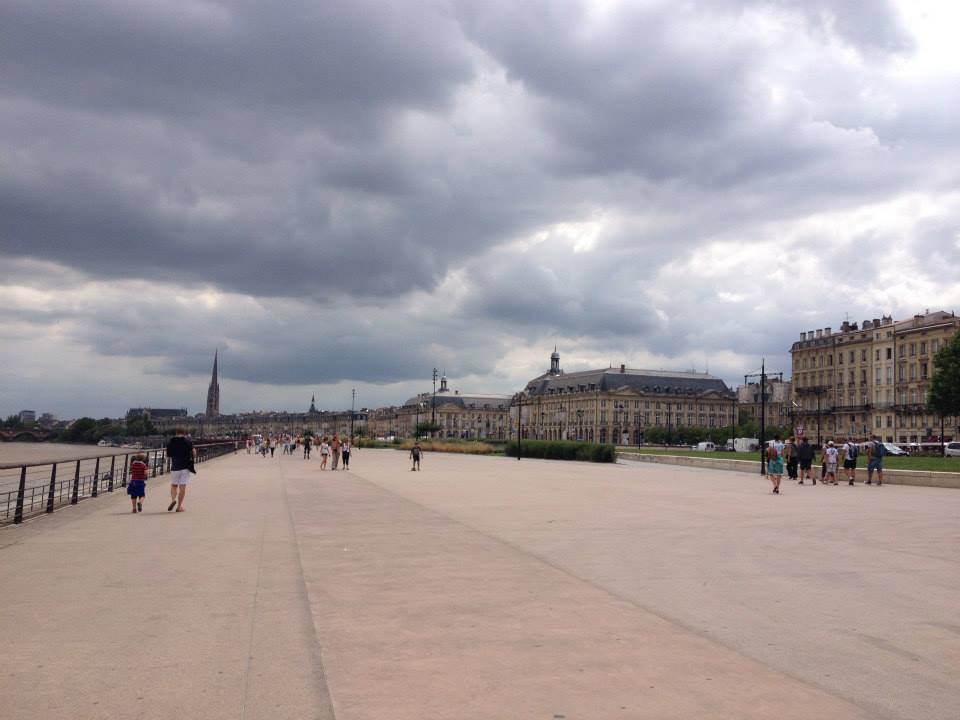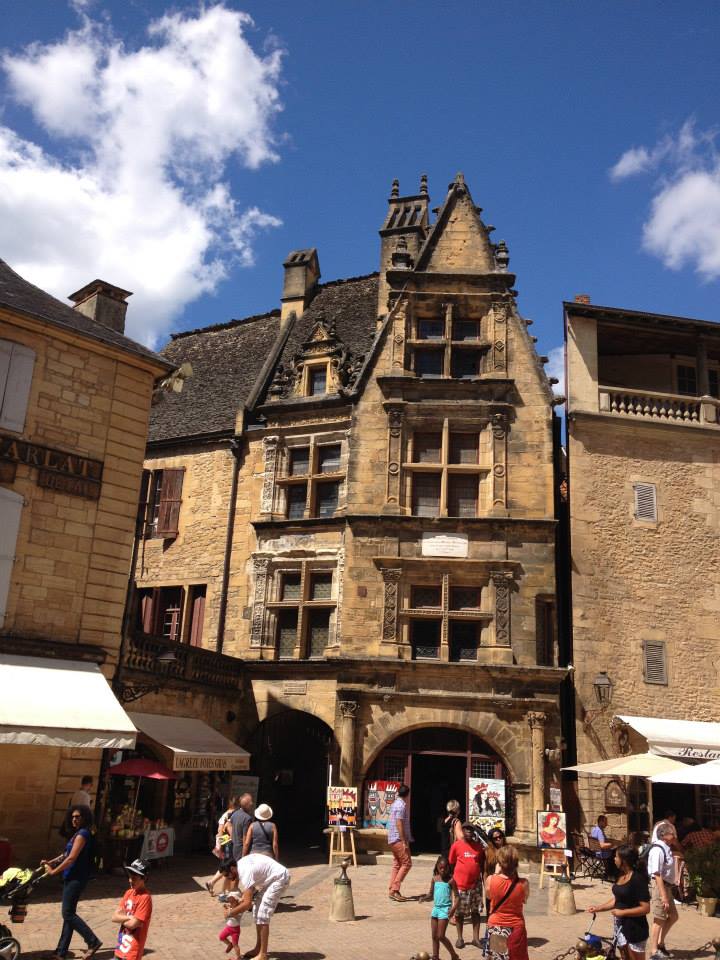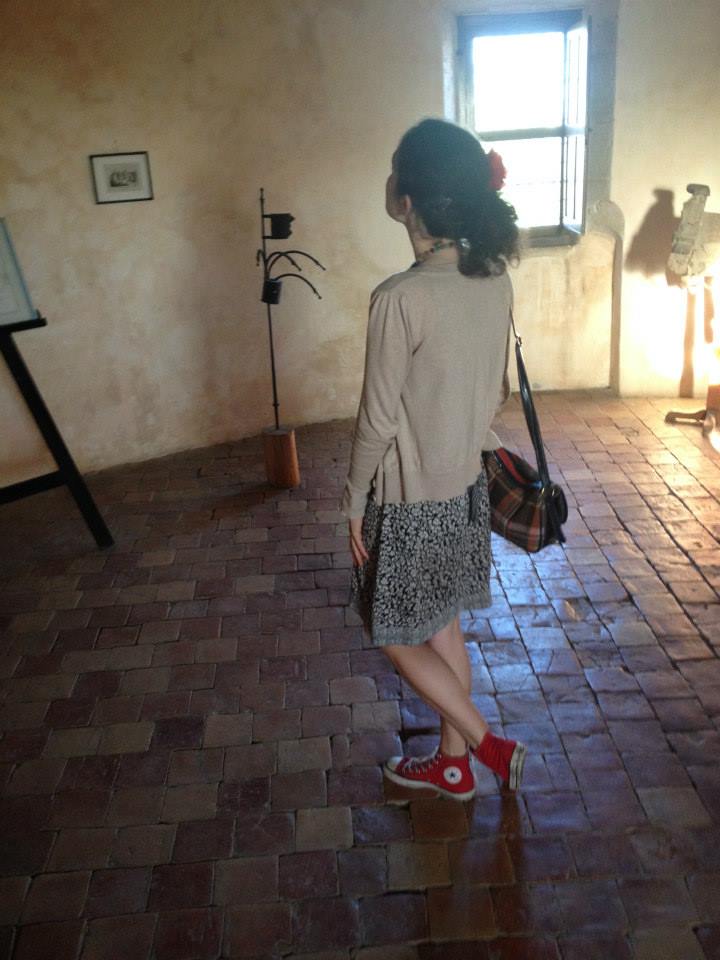posted by Jessica Allen
One of the key features of the modern languages degree is that the third year is usually spent abroad. At Oxford, we are exceptionally lucky in that we are able to spend this year however we want as long as our plans are approved by our tutors. With no work which counts towards our degree to complete, it’s therefore a year in which we are able to really focus on becoming fluent in our language(s) as well as exploring any particular interests we happen to have, whether these are academic, extra-curricular or related to career choices. I study both French and German, so this time last year I was faced with the enviable situation of having to split my fifteen months between two languages. Having long ago decided that I wanted to study at a German university, I was left with the task of slotting in France around the two four-month long semesters.
The first window I had was the summer vacation after my second year. Back in January a fellow Oxford linguist and one of my tutors mentioned on the same day that it was possible to undertake a stage (internship/work experience placement) at the Château de Montaigne, where the sixteenth Century Humanist Michel de Montaigne lived and composed the Essais, for which he is best known today. As a huge Montaigne fan I couldn’t believe it, so I sent a letter detailing my love to Montaigne to the address on the website. A few weeks later contracts were signed and I had a two month placement for the summer. The deal was very good: five days of work per week in exchange for free accommodation within the walls of the nineteenth century château itself, plus 70 euros a week and a gorgeous leather bound book.

Life at the château was incredibly varied and fulfilling, which was a pleasant surprise, given its location in a tiny village with absolutely no services and with the nearest larger village a 50 minute country walk away. I woke up naturally every morning at about 7am when the sun began to shine through the crack between the shutters of my room, which was in a converted wing of the château where Montaigne’s own horses most probably lived. I then had a few hours for reading, writing and breakfast before my working day began at ten. The job itself consisted of selling tickets and merchandise in the gift shop and hosting wine tastings, as well as undertaking a few duties in the huge wine warehouse, which was certainly very enlightening for someone who knew little about wine beforehand. But the most exciting thing was the guided tours. Twice a day I collected the heavy key and walked from the reception area through the woods to the château and the attached fourteenth century tower, the only part of the building which was not destroyed by a fire in the nineteenth century. The guided tour, an account of Montaigne’s life and work, is based in and around the tower and lasts about forty five minutes. At first, the idea of doing this in French was daunting, however once the facts were clear in my mind I found myself really enjoying this linguistic exercise, and actually only gave a handful of tours in English or German. The best part of the job was definitely meeting so many fellow Montaigne fans who were always happy to exchange ideas, as well as introducing several people to his life and work who had never encountered it before.

Our working day was over at six thirty. At this point, the three girls who worked permanently at the château would head home, leaving us four stagiaires (interns) to our own devices. We would cook together whilst watching the sun set over the vineyards. Despite being so isolated, there was always plenty to do, not least exploring some of the abandoned rooms of the chateau which no one seemed to have visited for hundreds of years. This isolation was also excellent for my language skills, for there was no chance of finding a big English-speaking group to socialise with, and between the seven of us we almost exclusively spoke French. It was a lovely environment because we were all girls aged between 20 and 24, and occasionally in the evenings we would have dinner parties or decamp to one of the many rustic soirées in the surrounding villages.
This immersion into French rural culture also forced me to develop a whole new set of practical skills, for example changing the gas, hand washing sheets and towels, and cleaning up petrol spills. On my days off I really wanted to see some of the picturesque Aquitaine region. Luckily, where there’s a will there’s a way, so with the aid of an ancient, gearless bicycle, I would leave the château when it was still dark, catch the once daily train out of the nearest village after a perilous bike ride through the vineyards and, by 8 or 9am, I would have reached my destination. I visited Bordeaux, Bergerac, Sarlat, and several of the surrounding villages, each of which had its own little quirks and was well worth the early start. The only train home was at 6pm, but at that point I was usually starting to miss the comforting air of the château anyway.

After two months I was sad to leave and still miss the opportunity to really engage with French language, literature and culture in a practical context on a daily basis. Maybe it seems odd that a twenty year old girl considers her best summer ever to be the one she spent living in an isolated château deep in the French countryside, but I’ll never forget the time I spent retracing Montaigne’s footsteps, and wouldn’t hesitate to recommend this experience to others looking for a rewarding, short-term work placement in France on their year abroad.


